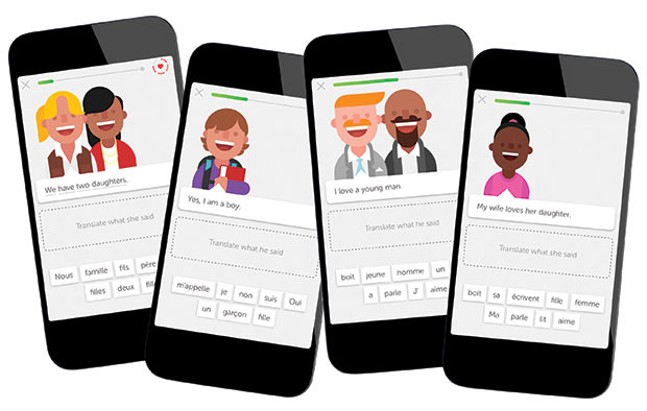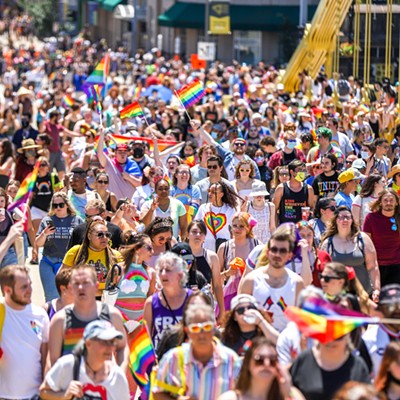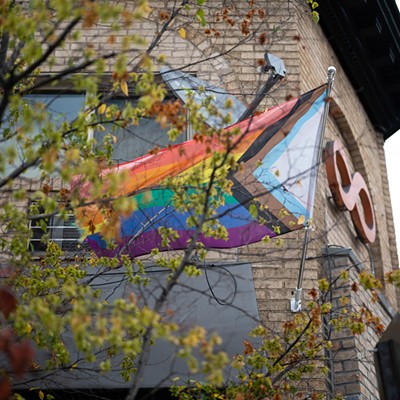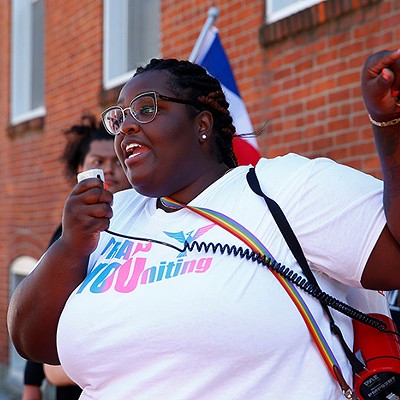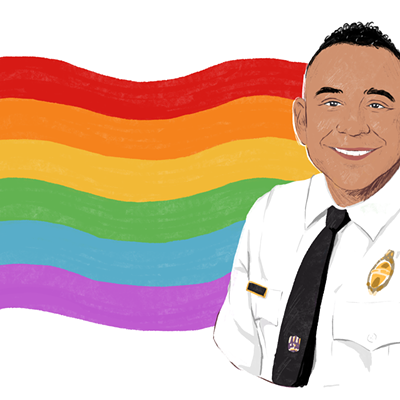In honor of Pride Month, language learning app Duolingo posted screenshots on social media of sentences LGBTQ users might be asked to translate during their lesson. They include "her wife is reading a book" and "the dress fits him very well."
They’re subtle enough that if you're not reading closely, you might miss it, but it's enough of a statement that if you do notice, it could really matter. It was posted during Pride Month, but inclusivity has been a part of the app’s mission for a while.
"We’ve heard from many learners over the years that they appreciate and value this type of inclusivity in our lessons, and we believe it’s important to uphold this," says Myra Awodey, Lead Community Specialist at Duolingo. There are corners of the web, on Duolingo's own user-run forums or reddit, where people will post a screenshot of a similarly inclusive sentence saying "Duolingo is the best" or "this small thing made me happy."
Pittsburgh-based Duolingo is a relatively new language-learning platform, but with over 200 million global users, it's one of the most popular ways to learn a language in the world.
The app touts that more Americans are learning a foreign language on Duolingo than in the U.S public school system (which is also a fair dig at the U.S public school system). The company's offices are in East Liberty and the app was created by a Carnegie Mellon University professor and grad student.
For better or for worse, apps are now important teachers in our lives, and virtual classrooms, just like our brick-and-mortar ones, function best for the students when they feel they’re respected and understood.
"Because language is so core to one’s identity, inclusivity truly matters," Awodey says. "More broadly, knowledge of foreign languages has been known to increase empathy and understanding, and we believe this goes hand in hand with more inclusive learning content.”
It makes a clear stand on teaching language in an era where that can be contentious.
Millennials didn't invent discourse on gender and sexuality in the classroom, but it's fair to say in the past few years, discussions on how to handle these topics have reached a boiling point in millennial classrooms, with some professors openly refusing to use students’ correct pronouns.
Unsurprisingly, it’s not a given in the rocky landscape of 2018 that teachers and learning environments are always welcoming of inclusive language. In some cases, teachers actively fight against it. Rejection of "they" as a singular pronoun based on grammatical principles is still fairly common, just as there are those who refuse to acknowledge gay marriage based on the principle that it's an institution between a man and a woman.
Much like gender and sexuality, language is fluid. It cannot be put into a rigid box no matter how much some people would like it to be. And if language is fluid, then the institutions that teach it have to be as well, evolving with each generation of learners. The way English was spoken in 1718 is not the same as it was spoken in 1918 or 2018, because the way people talk is always evolving, including what words are and are not deemed acceptable.
There's a reason the Oxford English Dictionary announces new additions every year, and there's a reason Urban Dictionary exists to define words quicker than a language institution can.
Duolingo still faces broader linguistic challenges, like how to handle gender within gendered languages, like French or Spanish. Awodey also notes that the app is still figuring out how it might change to include more gender-neutral pronouns in the future.
A cynic (or realist) would see Duolingo's Pride social media display as another corporate marketing ploy. By now, brands have learned to capitalize on and profit off of LGBTQ inclusion. It’s become a commodity, something brands slap a rainbow flag on and sell, without actually giving back to the community off of which they profit. Think Oreos, McDonald's, Nike.
Believing that these companies are participating in Pride because they actually want to support the livelihood of the LGBTQ population is easier and more comfortable than seeing it as a marketing tactic. After all, Duolingo is a free app (with a paid premium option) and gives back in other ways. The company recently released a short documentary, Something Like Home, which tells the story of Syrian refugees (who use Duolingo).
It is heartening to look at the comments on the Duolingo Pride post and notice that almost everyone is supportive. The few dissenters have dozens of replies criticizing them. Language inclusion like this doesn't solve all LGBTQ problems in the world.
If bigots taking an Italian lesson have to translate the phrase "his husband is reading a book," it probably won't suddenly change their minds. But there is something to be said for being seen by your teacher.

